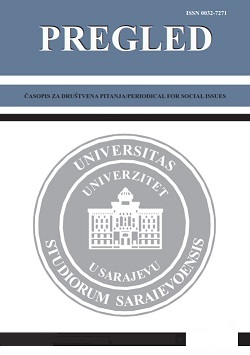Da li je entitet Republika Srpska osporiva kategorija ili konstanta?
Is Entity Republika Srpska a Disputable or a Permanent Category?
Author(s): Suad KurtčehajićSubject(s): Constitutional Law, Criminal Law, International Law, Political history, Government/Political systems, Criminology, Victimology, Transformation Period (1990 - 2010), Peace and Conflict Studies
Published by: Univerzitet u Sarajevu
Keywords: Dayton Agreement; Vienna Convention on the Law of International Treaties; jus cogens; International Court of Justice in The Hague; Bosnia and Herzegovina; Republika Srpska; genocide;
Summary/Abstract: Politicians from the Republika Srpska constantly send messages that this is a permanent category. Undisputedly, the Republic of Bosnia and Herzegovina went through a transformation into the State of Bosnia and Herzegovina with two entities by initialling of the Dayton Peace Agreement on 21 November and its signing on 14 December 1995 in Paris. However, after Dayton came a realisation that members of the Republika Srpska Army and Police committed numerous crimes, the most severe of which was the crime of genocide in Srebrenica, affirmed by the most senior judicial body – The International Court of Justice in The Hague, on 26 February 2007. This verdict changed everything. The situation in which such a verdict exists, and where the entire military and political leadership of the Republika of Srpska has been prosecuted in the Hague receiving long-term prison sentences for crimes against humanity, while the entity for which those crimes were committed remains undisputable, is not normal. With this verdict for genocide it is necessary to uninstall Republika Srpska, which is the only cause and consequence of genocide. Neither morality nor justice can be satisfied if Republika Srpska survives. Luckily, there are legal norms that can uninstall this creation, primarily provisions of Article 53 of the Vienna Convention on the Law of International Treaties, related to treaties that are conflicting with the peremptory norm of general international law (jus cogens). In that norm is stated that any treaty is void if, at the time of its conclusion, it conflicts with a peremptory norm of general international law (jus cogens). In theory, it is indisputably accepted that this norm includes ban on genocide. Consequently, a strict implementation of this norm opens possibility for annulment of the Dayton Agreement, which is, as a treaty, subject to rules of the Vienna Convention, and the abolition of Republika Srpska as an entity responsible for genocide that has been affirmed by the ICJ.
Journal: PREGLED - časopis za društvena pitanja
- Issue Year: LIX/2018
- Issue No: 2
- Page Range: 201-208
- Page Count: 8
- Language: Bosnian

